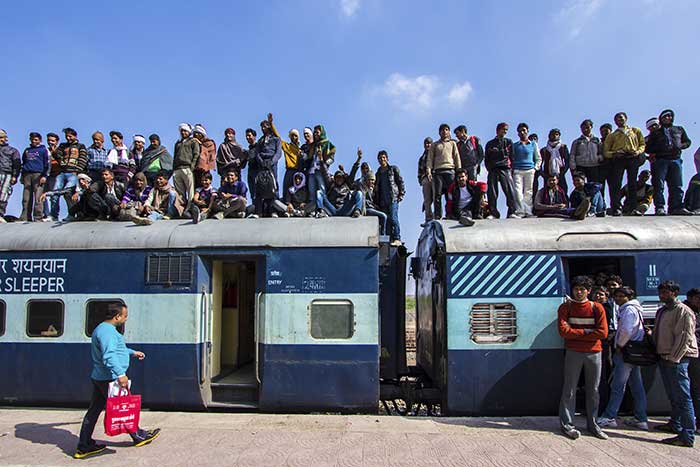web_infrastructureindia_shutterstock_182338229.jpg

Crowded train waiting to depart.
Development banks from every continent, along with partners and representatives of the G20, G24 and G77, came together on Saturday to consider how to remove blockages stymieing the construction needed to drive growth, investment, and development.
The event was the latest sign of cooperation between the newest entrants to the development landscape, such as the China-led Asian Infrastructure Investment Bank which launched earlier this year, and long-established players like the World Bank.
Opening the event during the World Bank and International Monetary Fund’s Spring Meetings, United Nations secretary general Ban Ki-Moon said the forum would ensure developing countries, especially the most vulnerable, will get the international support needed to bridge their infrastructure gaps.
The infrastructure gap is worldwide, spanning the US and Europe to the world’s low- and middle-income countries. Altogether, the infrastructure deficit is estimated to amount to $1tn annually.
But an Asian Development Bank study suggests Asia alone will see an $8tn shortfall between 2010 and 2020, and according to global advisory firm EY, Africa needs approximately $90bn every year from 2013-2023.
Opening up new sources of funds will therefore be key. A statement released following Saturday’s forum stated that development banks and their partners will be taking a number of actions to do so.
As well as greater cooperation between development banks to open up co-financing opportunities and collaboration with new partners, this also includes securing higher levels of private sector participation.
Sir Suma Chakrabarti, president of the European Bank for Reconstruction and Development, stated that capital markets will be another important component in raising the needed funds.
Even when funds are available, they can sit unused if there is a lack of bankable, well-prepared projects. The banks aim to tackle this by working to strengthen project preparation and support countries in developing a pipeline of sound, well-planned proposals.
The institutions will further work to reduce bottlenecks and constraints by promoting efficiency and compatibility in approaches, which could lower transaction.
Finally the banks set an aim to improve the availability of information on infrastructure, by improving data acquisition and developing systematic reporting systems. This could enable better planning and prioritisation of projects, more informed decisions around investment and improved disclosure, transparency and accountability.
The Global Infrastructure Forum is now expected to be held annually to review progress, with the responsibility for hosting rotating among the development banks.
Saturday’s event was co-hosted by the African Development Bank, Asian Development Bank, AIIB, EBRD, European Investment Bank, Inter-American Development Bank, Islamic Development Bank, New Development Bank and World Bank, in cooperation with the United Nations and other development partners.













